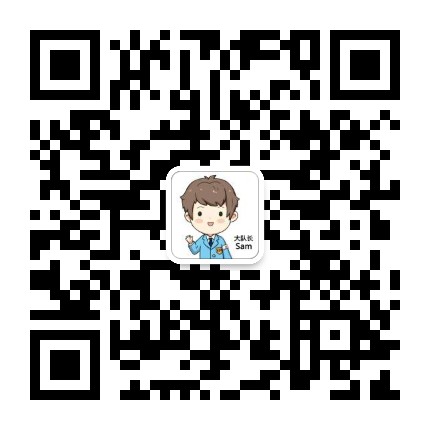雅思阅读
2018-07-05 14:09
来源:
作者:
Pissed
In America,
we may get "pissed off" when we're angry, but the Brits and Irish who
are "pissed" are extremely intoxicated. "Taking the piss," however,
means "to make fun of," not "to get drunk."
在美国,我们生气时会说“get pissed off”,但是英国人和爱尔兰人如果说“pissed”,意思是烂醉如泥。不过“taking
the piss”意思是“取笑”,而不是“喝醉”。
Avoid Using
In: The U.K., Ireland, Australia, New Zealand
避免使用的国家:英国、爱尔兰、澳大利亚、新西兰
Bangs
Prepare for
weird looks if you're bragging about your new "bangs" in England. A
forehead-covering haircut over there is referred to as a "fringe"
instead. Overseas, "bangs" is more commonly used as the somewhat
vulgar slang that it is interchangeable with in America.
如果你在英国炫耀自己的新“bangs”(刘海),恐怕不少人会向你投去怪怪的眼神。在那里“刘海” 被叫做“fringe”而不是“bangs”。在美国以外的地方,“bangs”是一种粗俗的俚语说法。
Avoid Using
In: Anywhere outside of North America
避免使用的国家:北美以外的任何国家
Knob
Americans
hear the word "knob" and think "doorknob" or
"lever." It has a much dirtier meaning in other countries, like
Australia and the U.K., where it's an insult or slang for a part of the male
anatomy. Now you'll know to be offended if someone calls you a "knob
head."
美国人听到“knob”这个词想到的是“门把手”。但是在澳大利亚和英国等其他国家,“knob”的意思要“黄”得多。在那里国家,“knob”指的是男子生殖器的一部分。现在你知道别人叫你“knob head” 你应该是什么反应了吧。
Avoid Using
In: The U.K., Ireland, Australia, New Zealand, South Africa
避免使用的国家:英国、爱尔兰、澳大利亚、新西兰、南非
Root
Americans
may "root around" looking for a lost object, but Australians and New
Zealanders use the term to refer to having sex.
美国人用“root
around”来指“寻找”失物,但澳大利亚人和新西兰人用这个词组指代发生性关系。
Avoid Using
In: Australia, New Zealand
避免使用的国家:澳大利亚、新西兰
Pull
If someone
"pulled" last night in the U.K., they're probably not talking about
pulling a muscle or drawing something apart. It's commonly used as slang for
successfully picking up someone while out on the town. Likewise, "going on
the pull" means that someone is going out with the express goal of getting
some action.
如果在英国某人昨晚“pulled”,他们很可能不是在说肌肉拉伤或是把什么东西拉开,而是指外出时成功“钓”到某人。同样,“going on the pull” 意思是某人为了猎艳而出动。
Avoid Using
In: The U.K., Ireland
避免使用的国家:英国、爱尔兰
Bugger
If you
affectionately call your child or pet "little bugger," you might want
to reconsider doing so in pretty much any other English-speaking country. In
most other places, from Canada to Australia, it is commonly used as an
expletive similar to the f-word.
在美国,如果你亲切地叫你的孩子或宠物“little bugger”(小家伙),到其他讲英语的国家可千万别这么说。在大多数其他英语国家,如加拿大和澳大利亚,“bugger”都是骂人的话,相当于“fuck”。
Avoid Using
In: Most places outside of America
避免使用的国家:美国以外的其他国家
以上是新东方雅思为您带来的【雅思词汇】哪些雅思词汇在不同的国家容易有歧义,更多雅思资讯请关注新东方雅思。

扫码添加大队长Sam,领取最新沪上热门国际学校招生信息
A BETTER YOU,A BIGGER WORLD!
版权及免责声明
①凡本网注明"稿件来源:新东方"的所有文字、图片和音视频稿件,版权均属新东方教育科技集团(含本网和新东方网) 所有,任何媒体、网站或个人未经本网协议授权不得转载、链接、转贴或以其他任何方式复制、发表。已经本网协议授权的媒体、网站,在下载使用时必须注明"稿件来源:新东方",违者本网将依法追究法律责任。
② 本网未注明"稿件来源:新东方"的文/图等稿件均为转载稿,本网转载仅基于传递更多信息之目的,并不意味着赞同转载稿的观点或证实其内容的真实性。如其他媒体、网站或个人从本网下载使用,必须保留本网注明的"稿件来源",并自负版权等法律责任。如擅自篡改为"稿件来源:新东方",本网将依法追究法律责任。
③ 如本网转载稿涉及版权等问题,请作者见稿后在两周内速来电与新东方网联系,电话:010-60908555。
雅思阅读
